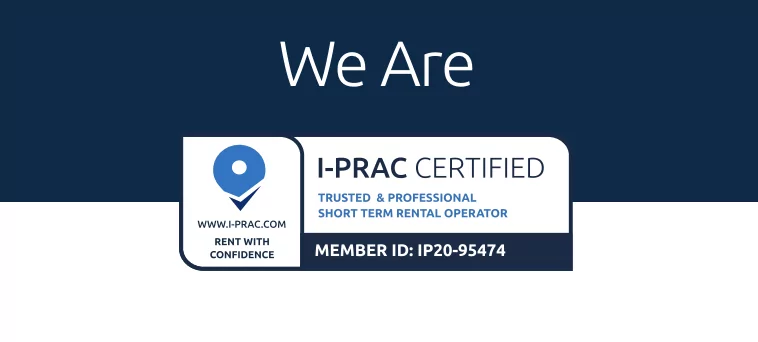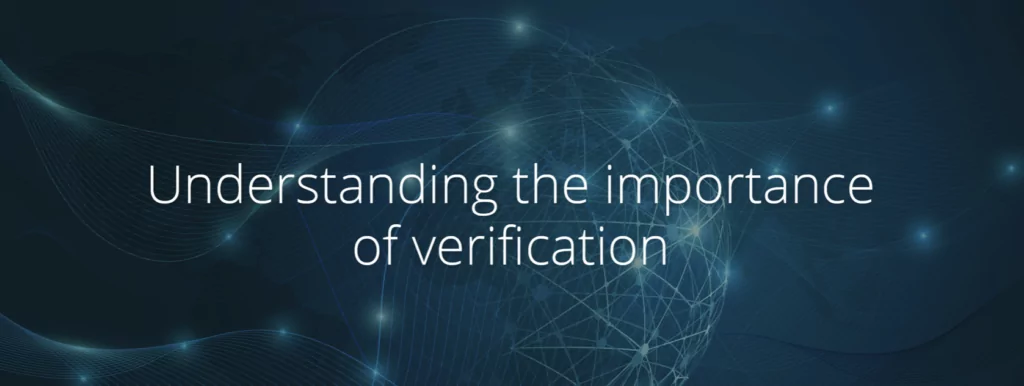Verification is a crucial aspect of modern business operations, serving multiple purposes that contribute to a company’s reputation, trustworthiness, and ultimately its conversion rates. In this essay, we will delve into the significance of verification in business and how it impacts these key areas. We’ll explore the various dimensions of verification, from customer trust and data security to compliance and transparency, shedding light on the multifaceted role it plays in today’s business landscape.
THE LEADING VERIFICATION PLATFORM FOR THE SHORT TERM RENTAL SECTOR

1. Verification Enhances Trust and Reputation
Trust is the cornerstone of any successful business. In an era where skepticism and uncertainty are prevalent, businesses need to establish trust to attract and retain customers. Verification is instrumental in this endeavor. Here’s why:
Identity Verification: Businesses can verify the identity of individuals or entities they engage with, such as customers, partners, or employees. This verification ensures that businesses are dealing with genuine, legitimate entities, reducing the risk of fraudulent activities. When customers see a business taking steps to verify their identity, they are more likely to trust the company.
Social Proof: Verification can also be used to display customer reviews, testimonials, and endorsements. This social proof serves as a verification of the quality and reliability of a product or service. Positive feedback and testimonials build credibility and in still trust in potential customers.
Accreditations and Certifications: Many businesses seek accreditations or certifications to verify their commitment to quality and best practices. These external endorsements serve as a verification of a company’s dedication to meeting certain standards. Customers often seek out businesses with these verifications as they imply reliability and competence.
Reputation Management: In the age of the internet, reputations can be built or destroyed rapidly. Verification allows businesses to proactively manage their online presence and address issues promptly. This helps in maintaining a positive reputation, which is critical for attracting new customers and retaining existing ones.
2. Verification Facilitates Data Security and Privacy Compliance
The digital age has brought significant concerns about data security and privacy. Businesses are entrusted with vast amounts of sensitive customer data, and ensuring its protection is paramount. Verification is closely linked to data security and privacy compliance:
Data Verification: Businesses often collect and store customer data for various purposes. Verification is crucial in ensuring the accuracy and integrity of this data. Inaccurate data can lead to errors, miscommunications, and, in the worst case, breaches.
User Authentication: Verification is an essential aspect of user authentication. Two-factor authentication (2FA) is a common method used to verify a user’s identity, adding an extra layer of security. By implementing robust verification processes, businesses can protect their users’ data and accounts.
Regulatory Compliance: Many industries are subject to regulations like GDPR, HIPAA, or PCI DSS. Compliance with these regulations often requires strict verification processes for handling sensitive data. Non-compliance can result in significant fines and damage to a company’s reputation.
3. Verification Fosters Transparency
Transparency is integral to modern business practices. Customers, investors, and partners expect businesses to be open and honest about their operations. Verification promotes transparency in the following ways:
Financial Transparency: For publicly traded companies, financial verification is mandatory. This includes audits and reporting to ensure that financial statements are accurate and transparent. This transparency is crucial for investors and stakeholders.
Supply Chain Transparency: Businesses are increasingly required to verify the ethical and sustainable practices in their supply chains. Verification of these practices, such as fair labor, environmental impact, and product authenticity, provides assurance to customers and stakeholders that a company is socially responsible.
Corporate Governance: Verification can also be applied to corporate governance practices, ensuring that a business is run efficiently, ethically, and with proper oversight. Transparent governance is attractive to investors and partners.
4. Verification Streamlines Operations and Reduces Risk
Verification processes can optimise business operations and reduce risks in various ways:
Efficiency: Verification can streamline onboarding processes, such as employee background checks or customer account setup. Automated verification tools can significantly reduce manual labor and processing time, leading to cost savings and improved efficiency.
Risk Mitigation: Verification helps identify and mitigate risks. This can range from credit checks to prevent financial risks to verifying qualifications to reduce the risk of hiring unqualified employees. By identifying potential issues early, businesses can take proactive measures to mitigate them.
Supply Chain Management: For businesses reliant on a complex network of suppliers, verifying the reliability and ethical standards of suppliers can reduce the risk of disruptions or scandals within the supply chain. This is especially important in industries like food, fashion, and electronics.
5. Verification Boosts Conversion Rates
Ultimately, the overarching goal of any business is to convert potential customers into paying customers. Verification plays a vital role in this aspect as well:
Reduced Friction**: Verification processes, when designed efficiently, can reduce friction in the customer journey. This is evident in various industries, from e-commerce checkout processes that verify payment information to streaming services that use authentication methods to grant access.
Enhanced Credibility: When customers see that a business has verified information, such as security certifications or accreditation from industry bodies, it enhances the credibility of the business. This credibility can be the deciding factor in a customer’s purchase decision.
Personalization: Verification can also enable businesses to personalize their offerings. When businesses have verified customer data, they can tailor their products or services to individual preferences, increasing the likelihood of conversion.
Trust Signals: Trust badges, security logos, and verification marks prominently displayed on a website or product can serve as trust signals, reassuring potential customers that their information is safe and their transactions are secure. These trust signals can significantly impact conversion rates.
6. Challenges and Considerations in Verification
While verification offers numerous benefits to businesses, it’s not without challenges and considerations:
Balancing Security and Convenience: Businesses must strike a balance between implementing robust security measures and maintaining a convenient user experience. Excessive verification steps can deter potential customers.
Data Privacy: Handling and storing customer data come with significant responsibilities in terms of data privacy. Businesses need to ensure they comply with relevant data protection regulations and maintain the trust of their customers.
Costs: Implementing verification processes can come with costs, both in terms of technology and personnel. Smaller businesses may find it challenging to invest in these processes.
Accuracy and False Positives: Verification processes are not infallible. They may produce false positives, denying genuine users access, or false negatives, allowing unauthorized access. Striking the right balance is crucial.
Conclusion
Verification is a multifaceted tool that plays a vital role in enhancing trust and reputation, ensuring data security and privacy compliance, fostering transparency, streamlining operations, and boosting conversion rates. In today’s competitive business landscape, trust and credibility are the cornerstones of success. Businesses that prioritize verification not only protect themselves from potential risks but also position themselves as reliable and transparent entities in the eyes of customers, partners, and investors.
As technology continues to evolve, so does the field of verification. Innovative methods, such as biometric authentication, blockchain-based verification, and artificial intelligence-driven identity verification, are emerging, offering new ways for businesses to enhance trust and security. To remain competitive and trustworthy, businesses must continually adapt and improve their verification processes, ensuring they align with evolving customer expectations and regulatory requirements.
So the question NOW is are you ready to invest in VERIFICATION TOOLS



